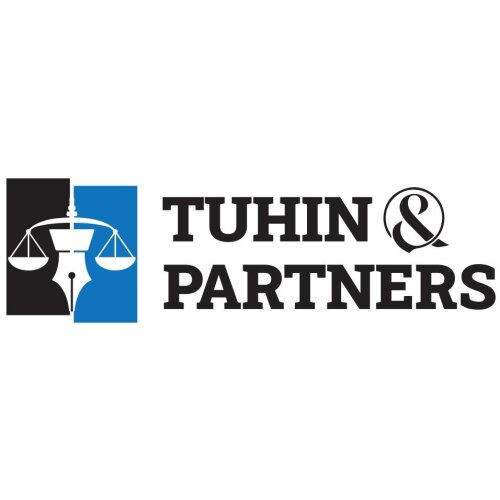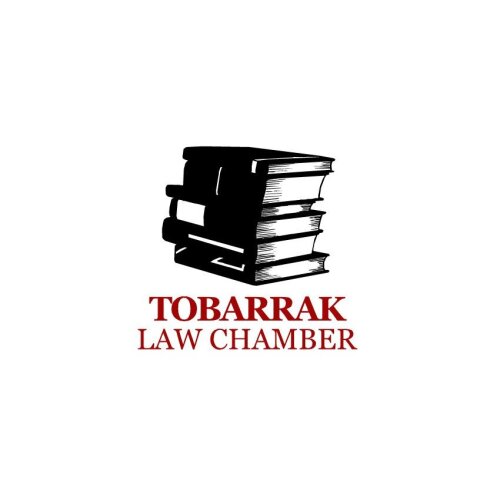Best Fintech Lawyers in Dhaka
Share your needs with us, get contacted by law firms.
Free. Takes 2 min.
List of the best lawyers in Dhaka, Bangladesh
About Fintech Law in Dhaka, Bangladesh
In Dhaka, Bangladesh, both local and international fintech companies are providing innovative solutions that are transforming the financial landscape. This rapid development has brought a surge of opportunities along with a variety of novel legal complexities. Bangladesh's policy framework is evolving to cater to these developments with institutions like the Bangladesh Bank providing guidelines and regulations. This makes understanding the landscape of fintech law crucial for both startups and established businesses involved in this sector.
Why You May Need a Lawyer
The legal environment surrounding the fintech sector in Dhaka is not only complex but is also continuously evolving. Companies may require legal help in fintech for tasks such as drafting or reviewing agreements, ensuring compliance with regulatory requirements, managing intellectual property rights, and providing assistance with securing licenses for operating the fintech business. Moreover, legal advice can be crucial in cases of M&A transactions, litigation, and disputes-making a skilled fintech lawyer indispensable.
Local Laws Overview
The banking and financial regulations of Bangladesh, primarily The Bank company act 1991, The Bangladesh Bank Order 1972, and the Foreign Exchange Regulation Act 1947 dictate the legal boundary for Fintech businesses. For fintech firms offering digital payment solutions, the Payment Services Act (PSSA) and regulations issued by the Bangladesh Bank are extremely relevant. Furthermore, policies related to consumer protection, privacy, and data protection play a huge role, given the digital nature of fintech services, making the ICT act 2006, and digital commerce policy 2018 relevant. Adequately understanding these laws will aid in effectively operating within the legal norms.
Frequently Asked Questions
1. Can a foreign fintech company operate in Bangladesh?
Yes. However, they are required to follow the local laws, including securing necessary licenses and conforming to any specific restrictions or requirements specified by the government or regulatory authorities.
2. What is the legal status of cryptocurrencies in Bangladesh?
As per the Bangladesh Bank, the use, trading, and mining of cryptocurrencies like Bitcoin are considered illegal in Bangladesh.
3. Will the Bangladesh Bank regulate all fintech companies?
Not necessarily. While the Bangladesh Bank regulates financial institutions and electronic payment systems, other fintech sectors (such as Insurtech and Regtech) may be overseen by other regulatory bodies.
4. Are there any specific laws to protect data privacy in Fintech?
The Information and Communication Technology Act 2006 and the Right to Information Act 2009 include regulations in place to safeguard data privacy. However, a comprehensive data protection law specifically oriented towards fintech is yet to be enacted.
5. Is crowdfunding legal in Bangladesh?
At present, there are no specific laws or regulations governing crowdfunding platforms in Bangladesh. Therefore, they operate in a somewhat grey area.
6. What are the major laws affecting digital wallet operators in Bangladesh?
Guidelines issued by the Bangladesh Bank, especially those related to mobile financial services and payment service providers, primarily affect digital wallet operators. These guidelines define the operational, technological and security standards for such services.
7. What kind of capital requirements exist for fintech businesses?
Capital requirements vary depending on the business model and scale of the fintech business. Detailed capital requirements are typically stated in the license conditions issued by regulatory bodies.
8. Are there any compliance training requirements in Bangladesh for a Fintech business?
There aren't any specific training requirements. However, it's highly recommended that businesses ensure their staff understands the relevant legal and regulatory landscape due to the complex nature of fintech operations.
9. What is the state of consumer protection laws in fintech in Bangladesh?
The laws are evolving. Current regulations including The Consumers Right Protection Act 2009, The Money Laundering Prevention Act 2012 and Anti Terrorism Act 2009, and directives from regulatory bodies focus on consumer rights and protection.
10. Are there laws regarding peer-to-peer (P2P) lending in Bangladesh?
As of now, there aren't any separate regulations or guidelines regarding P2P lending in Bangladesh. Therefore, it is recommended to seek legal counsel before starting a P2P lending platform.
Additional Resources
You may refer to governmental bodies such as the Bangladesh Bank, Bangladesh Telecommunication Regulatory Commission and Ministry of Posts and Telecommunication for guidelines and regulations impacting Fintech. Non-governmental organization like BASIS (Bangladesh Association of Software & Information Services) also work actively in this sector. The website "BD Laws" is a comprehensive resource for all registered laws in the country.
Next Steps
If you need legal assistance in fintech, start by reaching out to a legal expert specializing in fintech law. They can provide you with personalized advice based on your specific needs and ensure that your operations are in complete compliance with the relevant laws and regulations. Having legal help right from the beginning will reduce risk and could be a key factor to your business's success.
Lawzana helps you find the best lawyers and law firms in Dhaka through a curated and pre-screened list of qualified legal professionals. Our platform offers rankings and detailed profiles of attorneys and law firms, allowing you to compare based on practice areas, including Fintech, experience, and client feedback.
Each profile includes a description of the firm's areas of practice, client reviews, team members and partners, year of establishment, spoken languages, office locations, contact information, social media presence, and any published articles or resources. Most firms on our platform speak English and are experienced in both local and international legal matters.
Get a quote from top-rated law firms in Dhaka, Bangladesh — quickly, securely, and without unnecessary hassle.
Disclaimer:
The information provided on this page is for general informational purposes only and does not constitute legal advice. While we strive to ensure the accuracy and relevance of the content, legal information may change over time, and interpretations of the law can vary. You should always consult with a qualified legal professional for advice specific to your situation.
We disclaim all liability for actions taken or not taken based on the content of this page. If you believe any information is incorrect or outdated, please contact us, and we will review and update it where appropriate.










